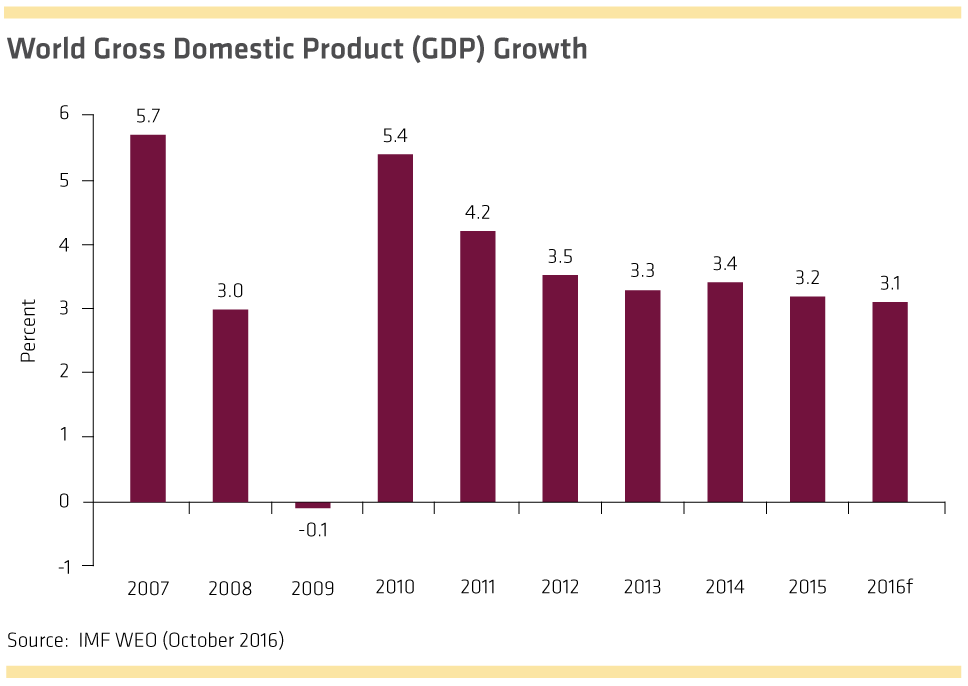Economic Overview
The global economy is projected to grow by 3.1 percent in 2016, slightly lower than the 3.2 percent growth in 2015. According to the International Monetary Fund (IMF), the referendum by the United Kingdom (UK) to leave the European Union (EU) (also known as Brexit) on 23 June 2016 further complicated the economic and political outlook. Additional downside risks for the global economy in 2016 include the slower-than-anticipated rebalancing in the Chinese economy, slowing productivity trends affected by demographics and geopolitical tensions.
International Economic Developments
The IMF in its October 2016 World Economic Outlook (WEO) maintained its 2016 global economic growth projection at 3.1 percent after downgrading it in July from the earlier 3.2 percent.
The ongoing uncertainties surrounding post-Brexit developments, continued realignment challenges in China, slowing demographic and productivity trends and geopolitical tensions continue to hinder world economic prospects.

Economic performances of Fiji’s major trading partners, in particular the United States (US), the Euro zone and New Zealand are now expected to be lower in 2016 compared to 2015. Japan’s economic growth is expected to be the same as last year while Australia is anticipated to do better.

